Getting the Part – Bubblegum Casting’s Comprehensive Guide to Auditioning
Whether you’re an aspiring actor or a parent looking to give your child a head start for their future, the entertainment industry can be really confusing. From paperwork to work permits, taxes to insurance, there’s just so much to take in – and that’s before we even mention the not-so-small matter of nailing a casting audition. Yes, believe it or not, although we here at Bubblegum spend a great deal of time helping our young stars and parents navigate the business end of child acting, we also understand that sometimes you or your child may need a few coaching tips on getting the job. Understanding the business side of the entertainment industry is crucial for building a successful acting career.
Although we like to offer advice on our blog, we also thought it would be a good idea to create an in-depth guide to auditioning for children and teen actors.
Just remember that all we can do is advise you. It’s the action that you or your child takes that really makes the difference.
So let’s get started!
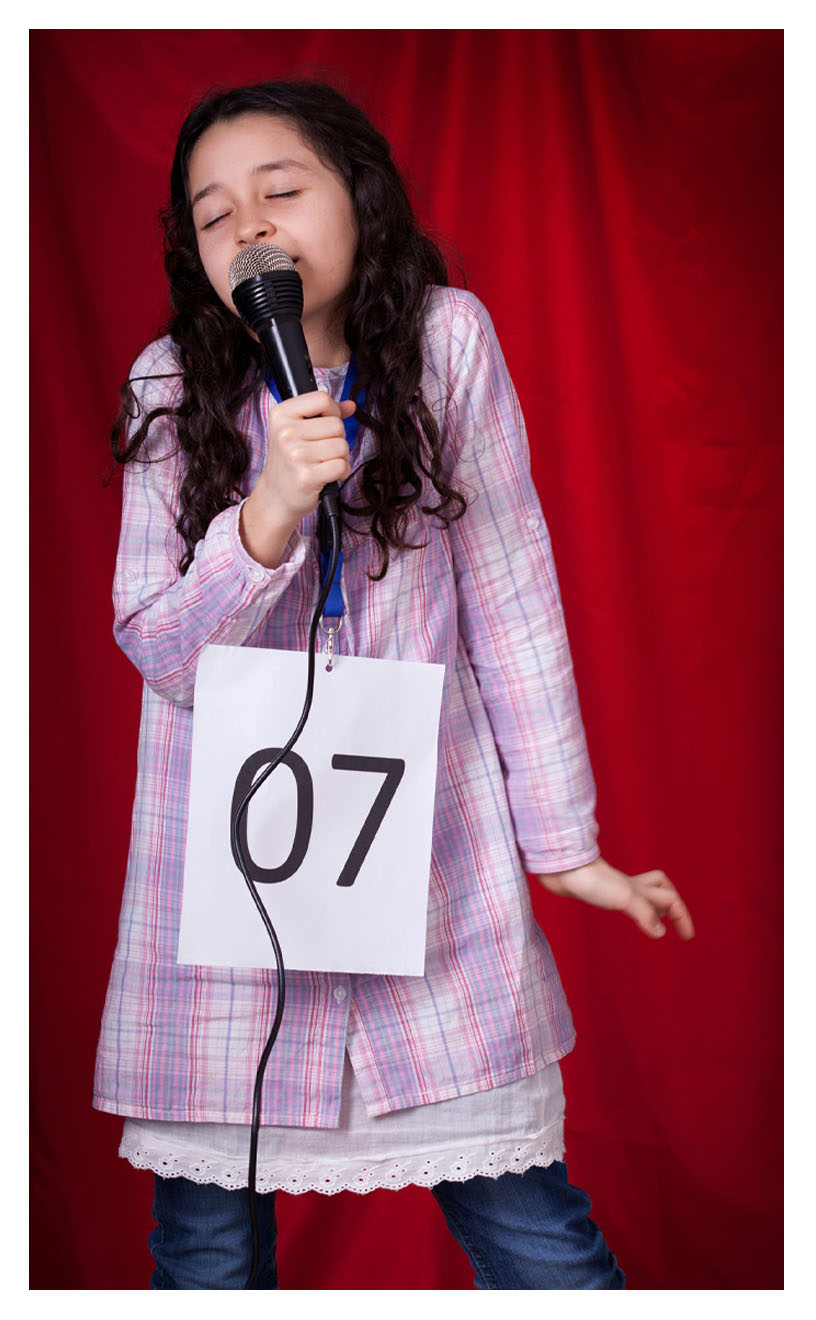
Getting more auditions
If you’re new to the world of acting, you’ll soon notice that the greater part of your time is spent in auditions. Movie auditions are widely available and accessible through various resources, making it easier to find job opportunities in the film industry. In fact, you might even start to think that all you and your child ever do is attend auditions! It’s important to note that this is the same for all actors no matter what age or how well-established they are within the industry.
As you know all too well, to land that role, your child will need to nail the audition. But first things first, how do you go about getting into that audition room?
Find an agent
It’s the first and simplest step in your adventure, but it’s also the one that is easiest to mess up. Unfortunately, if you do mess it up, your choice of agent could have long-lasting ramifications for the success of your budding starlet’s career.
That’s why we always recommend that you do your homework and make sure that the agent you hire or the kids casting agency you sign up with has a solid background and reputation for working with well-known brands and producers.
Choose the right agency (Bubblegum Casting springs to mind), and they’ll work their socks off to get you or your child into the audition room.

Watch out for casting calls and ads
There are a few open casting websites where you can keep an eye out for roles that might suit either you as a teen actor or if you’re a parent, your child. Public casting calls are crucial as they provide opportunities for auditions in movies and TV shows, and casting directors often post these calls to streamline the audition process.
You can even join groups on social media where parents of child actors or casting directors may share opportunities with the community. Utilizing casting sites like Actor’s Access or Backstage is important to find major movie auditions without an agent.
However, always remember that you should never have to pay to attend an audition or open casting call.
Site suggestions
You should always inform your agency of any opportunities that you have found online. They will know if it’s the real deal and can offer advice on what to do next.
Try student films
Every city has a film school or a film department at the local university, and it is here that you may find some potential roles for teen actors. This could be a good chance for teens to get some time in front of the camera and some clips for their showreel. Of course, the budget for such productions may be low, or in some cases non-existent, so don’t expect to earn too much.
Remember this option is only really suited to teen actors who want to gain more experience on set. Opportunities for child actors in student films are few and far between.


Check out the local theatre groups
Independent theatre productions are always looking for actors, and again this could be a wonderful opportunity for a young teen actor to get their feet wet in the industry. Spending time with theatre producers and directors could open up other opportunities and who knows, someone important could be sitting in the audience watching you.
Stage work is also great to have on your acting resume as live acting is quite tough. Casting directors know this and the fact that you have experience working in front of a live audience may just encourage them to take a chance and call you or your child in for an audition.
Take some classes
We can all understand the benefit of taking some acting classes. They can help a child or teen actor hone their skills while helping them build confidence in their abilities. Another (often overlooked!) advantage to attending classes is that the teachers and coaches are often quite friendly with local casting directors and producers. In fact, some of them may be working actors themselves!
Knowing how to audition for a movie without an agent is crucial, and direct networking with casting directors is key. Attending casting workshops and building relationships can provide access to major film auditions.
This means that they may know about upcoming opportunities before a casting call is put out. They may even be asked to find suitable children and teenagers for roles in the production, and we don’t need to tell you what a great opportunity that may be.
One thing we will say about acting classes though is that you should only invest in lessons if you or your child is serious about acting. Classes can be quite expensive, and it’s not worth paying for them unless your child wants or needs to study.
Build a portfolio
A teen actor can do this by trying the local theatre and student film options we mentioned above, but for child actors, opportunities don’t come along quite so easily. If you think that your child needs more experience, then consider auditioning for small roles in stage productions. You can even try some modelling just to get some experience working professionally.
While we’re not advocates of working for free, we can understand the temptation to allow your child to do so just to flesh out that portfolio. However, try to remember that while teen actors understand that they are working towards a greater goal, a young child actor doesn’t. We don’t recommend taking your child down this path. Paying opportunities will eventually come along.

Preparing for an audition
You get the call, your mind is racing, and your child has butterflies in their tummy every time they hear the word ‘audition.’ This is what you’ve both been waiting for, and now the opportunity has come along, it’s time to get ready.
1
Checking the script
You will likely receive a script for the scene that your child is auditioning for, and it’s vital to go through it carefully. Understanding how to audition for movies is crucial; securing an audition through a reputable agent and preparing thoroughly can make a significant difference.
Teen actors can do this by themselves or ask for help if needed, but child actors will likely need mum or dad to explain the script to them. Learning lines off by heart might be okay for reciting a poem in school, but it won’t cut the mustard when auditioning for an acting role.

Any actor needs to understand the 5 W’s and a child actor is no different. These are the who, when, where, why, and what relating to their character and the audition scene. If it seems a little too complex for your child, then think of an analogy that will give them the right idea of how they should play the role or how their character is feeling.
We really can’t stress how important this step of the process is as casting directors are rarely impressed by young actors who just ‘wing it’ in auditions – and trust us they’ll spot those who do. This is why it’s so important that either mum or dad are fully invested in the decision to allow their child join the world of acting because it’s you who will help your child practice at home.
2
Do your research
Often, reading the script isn’t enough to fully understand the character or the backstory involved. This is especially true if you have only received a page or two to work with. So get on the internet and do your homework.
If the audition is for a role in a running TV show, then sit down with your child and watch a few episodes. If it’s for a movie, then see if there’s a prequel or an older version of the film that you can watch or a book that it’s based on. If there’s no information available for the role, then consider creating your own backstory for the character.

Do whatever you can to give your child the opportunity to understand as much about the role as possible. You’ll be surprised at just how much a child can take on board, and a little understanding could make a huge difference to their performance in the audition.
3
Practice, practice, practice
Remember what we said earlier about practice with mum and dad? Well, now’s your chance.
Practice the lines again and again until your child is comfortable with the role and can not only deliver their lines at the correct moment but can put the right emotion behind those words. It’s also a good idea to practice in different rooms and in front of different people so they feel more comfortable when they walk into that unfamiliar audition room. Teens Casting and Kids Casting require a lot of practice, and by a lot, we mean a lot, lot.
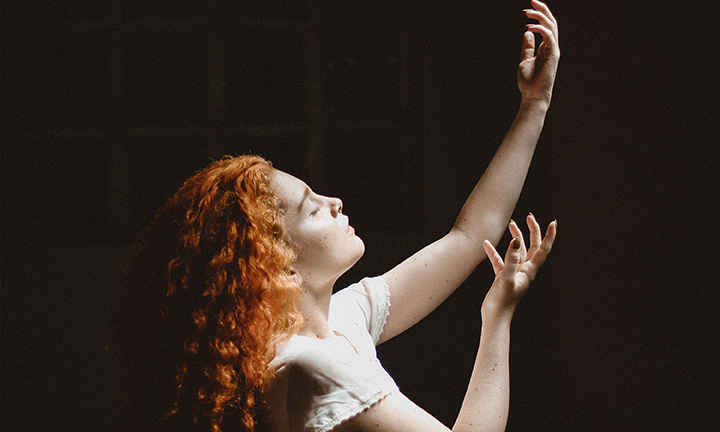
At this point, we also recommend recording the scene and watching it again. For younger children, this adds a little excitement to practice, and you may even find that they are eager to try again so they can improve their performance. It also allows a young actor the chance to feel comfortable in front of the camera so when they enter the audition room; they won’t freeze.
4
Warming up
The best way to warm up with a child before an audition is to run through the scene before leaving home and perhaps to have some fun with the part on the journey there. Sing some songs, say some rhymes but whatever you do, make sure they warm up their voice and clear their throat before walking through the door. A croaky voice won’t impress so drink water and avoid sugary or milky drinks before an audition. Remember: it takes three hours from drinking water for it to hydrate the throat.
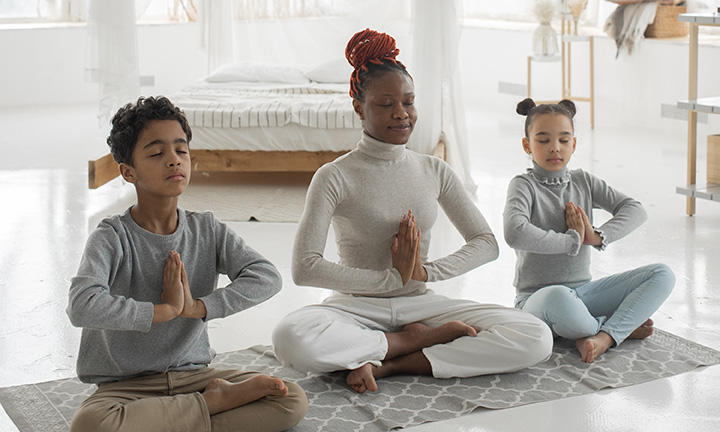
You also want to keep your child relaxed and not too jumpy before the audition so even if parents feel nervous, it’s important not to let your child know this. A calm and relaxed child is far more likely to make a good impression (more on that later).
The different types of audition
Auditions can vary depending on whether the role is for theatre, TV, or film.

Theatre

TV

Film

Self tape Auditions

Skype Auditions

Monologues
• Theatre
Stage productions can be a lot more intimidating than TV or film as there’s a live audience involved. For this reason, theatre roles are usually only recommended for outgoing children who are very confident acting in front of crowds.
Your child may be asked to perform a part of a scene alongside a cast member. With the stage being a big area to cover, it’s important that your child understands the importance of speaking up so the panel can hear what they are saying.
Casting directors for a stage production may also expect a child to perform some actions while acting their part so make sure to help your child practice so they fully understand what may be asked of them. You can help your child prepare by asking them to try their lines while sitting, standing, or even walking.
With many stage productions (but not all) you can find a film version or a recording of a previous stage version online. An older stage version would be ideal as it gives your child the chance to see how actors perform the roles on stage. There’s no need to copy these actions, but it should give you and your child something to work off when practicing the audition scene.

• TV
Casting for this type of role can move quite quickly, and so you can expect a quick audition. This means that first impressions are hugely important so again, do your homework.

Research the show and if possible, watch previous episodes. Run through the script with your child and give them some context, so they understand their character. As we mentioned earlier, you can use analogies for younger children if the subject matter is too complex.
The first audition will be with the casting director while further auditions may be required so the network heads and director can see your child in person. While there may be a lot of coming and going involved, the entire process can be a lot quicker than auditioning for film roles.
• Film
There’s a lot riding on casting decisions for a feature film as the right choice of actor can have a huge bearing on the film’s success. So for this reason, casting directors are a lot more careful when casting for film. They will take your child in for an audition, record their performance, and then agonize over every tiny detail.
Depending on the role, there could be anything from two to three or even four auditions before a final decision is made. Again, the only way to impress is by nailing the performance, and yes, you guessed it, that takes practice. You can see why we keep harping on about it now, right?
Do the same research you would for a TV or theatre role and make sure your child is familiar with the character and backstory of the role they are auditioning for.


• Self-tape auditions
A self-tape audition or self-test is when a teen actor or parent of a younger actor records the audition at home and sends it through to the casting director who can then review it when they have free time. While this sounds pretty great for a nervous child, you need to be careful to do it right.
You’ll need a camera/smartphone with a tripod and a background (preferably blue) which you can make with a sheet pinned to a wall. You’ll also need good lighting so the casting director can see your child’s cute smile (very important!).
Make sure to choose plain clothing and no blues. Patterned clothing can be distracting for the casting director while anything blue could clash with the background.
The great thing about this type of audition is that you can do it again and again until both you and your child are happy with the results.
• Skype auditions
Skype auditions are an increasingly popular choice for casting directors as they help production companies cut down on expenses. If your child is asked to audition in this way, it is essential that you make sure your equipment and internet speed are up to the task.
If using a smartphone, make sure you have a tripod, while laptops should be at eye level so your child isn’t looking down at the camera. Again, plain clothing and background are essential so that the casting director can remain fully focused on the performance at all times.
Prepare as you would for any other type of audition by researching the role, and practicing the script. It’s also a good idea to perform a mock audition so your child is familiar with the setup.
And one last tip; always look at the camera. This can be tough when there’s a screen in front of your child, but it really does help to have them speaking directly into the camera lens.


• Monologues
For all these types of auditions, we recommend that teen actors prepare a monologue that they can perform if asked. Just try to make it unique and something that the casting director may not have come across before. Making it relevant to the role or using something the character might actually say could be a great way to stand out from the crowd.
This isn’t always possible with younger actors, so it’s a good idea to practice asking them questions, so they feel comfortable answering them on the spot. A casting director may ask them what they want to be when they grow up or what they would like to do for their next summer vacation. So be prepared!
Audition style – what to wear
Sometimes a casting director will request that children dress in a certain way which is a great help but often parents can choose to dress their little stars however they see fit. However, this is not an open invitation to dress your child to the nines. In fact, you want to dress as plainly as possible.
We also recommend that you avoid using makeup or hair products if at all possible.

Plain is in
Leave the dinosaur and unicorn t-shirts at home, and there’s no need for bowties or fancy dresses. You want the casting director to be totally focused on your child’s talents and not your taste in clothing. So keep it simple.

It’s all in the fit
There’s nothing wrong with your child wearing clothes that you know they’ll grow into eventually, but for the audition, it’s best that they wear something that fits them right now. Baggy clothing or worse, clothes that are too small are a big no-no.

Stick to simple colours
Maybe you think that your child looks amazing in bright pink or a nice shade of Ferrari red, but those colours draw the eyes away from your child. Choose simple and subtle colours such as white or a light shade of grey – if you’re really not sure what to wear stick to blacks.

Get in character
While we strongly advise you not to go full cosplay, it’s not a bad idea to dress with the role in mind. So if auditioning for a role as a school student, perhaps your child could wear some elements of their uniform such as the pants/skirt and shirt. Not only will this show the casting director that you made the effort to research the role, but it will also give them a chance to visualise your child playing the part.

Keep it clean
It’s common sense, but we’ll just remind you that you should always make sure that your child is well-dressed and that their clothes are clean and crease free if possible! First impressions really do count in this industry.

Stay comfortable
Leave the sweater that itches your child’s neck at home, and if those pants are a little tight at the waist, then they can stay home too. Any child or teen will feel a little nervous at an audition, and uncomfortable clothes will not help matters at all.
Getting over the jitters
Nerves can play havoc and destroy all of your carefully laid plans so best to be prepared – this goes for mums and dads too!
Nerves are normal, and it’s a good sign that your child understands the importance of the audition. Rather than fighting those nerves or bottling them all up inside, talk about them and laugh at how nerves make you feel funny.
For parents of younger actors, remember that your child will react to your emotions so if you can stay calm and relaxed, they will feel much more comfortable with their pre-audition jitters.
Here are a few tips to help alleviate the tension a little.
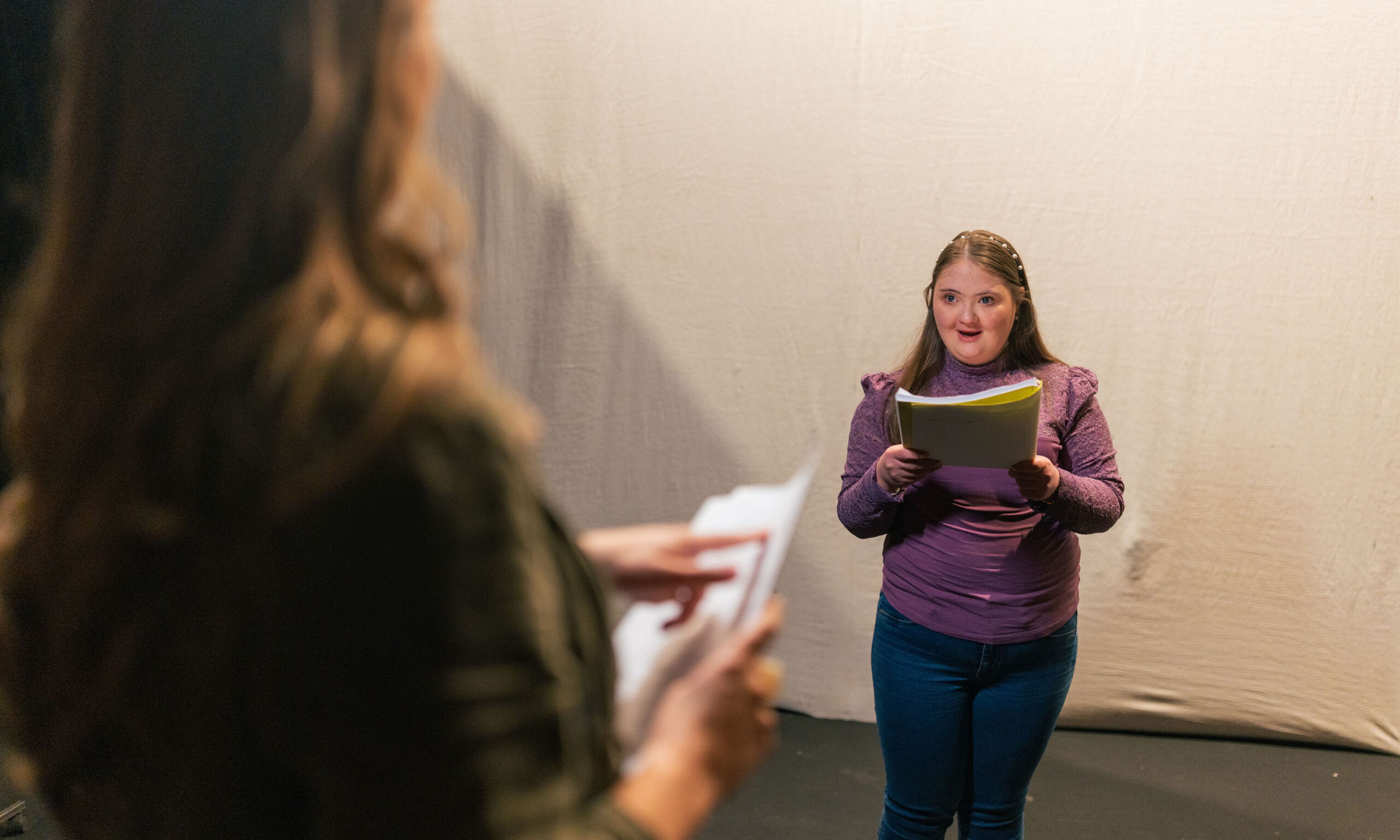
Practice
We’re starting to sound like a broken record here, but practice really does make perfect. By going through all the lines countless times in different rooms and spaces, the fear of forgetting anything will slowly ebb away settling those nerves before they’ve even started to take hold.

Warming up
Getting ready by going through the motions of reciting lines or practicing answering questions can help relieve tension and helps put a young actor in the right frame of mind before walking through that door.

Take some quiet time
Now we did just tell you that warming up is a great idea, but there’s also a lot to be said for having some quiet time before the audition. There can be a lot of nervous energy in the waiting room so listening to some music or reading a book in a quiet corner can help a child relax and forget about where they are for a short while.
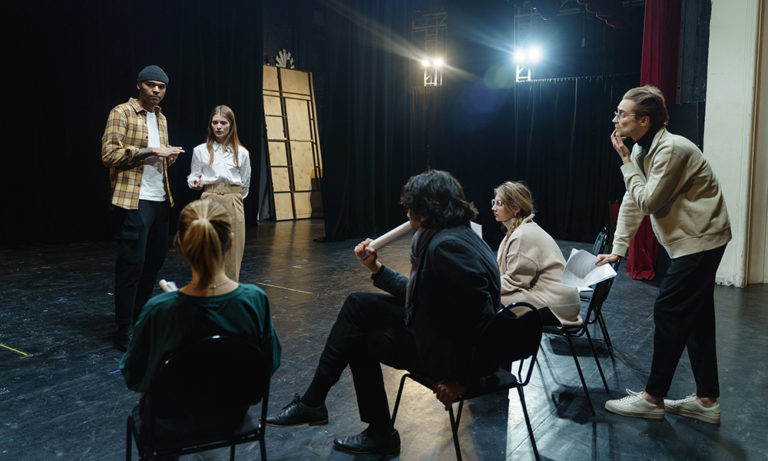
How to get noticed in an audition
This is a tough one because it all depends on what the casting director has in mind for the role. However, one thing we will tell you is that trying too hard to get noticed will get you noticed but not the way you want.
Casting directors want kids that act naturally and overacting or trying to steal the show is not natural. Both teens and children should relax and have fun with the audition. If the casting director likes what they see they’ll get called back.
Teen actors might want to try out these tips.

• Stay cool
If you can stay cool and work through your nerves without the casting director having to walk you through the entire audition, then you’ll likely stand out as an actor that can handle the stress of work. This is a very good thing indeed as it saves casting directors and directors a great deal of time.
• Be creative
Check the lines for your audition and see if there’s any way that you can get creative with your intonation and delivery. Perhaps a certain phrase is usually said in a particular way but what if you changed it up a bit?
This is something that will definitely get you noticed but be careful not to take it too far. Remember what we said about overacting.

• Inject some of yourself into the role
If you land the role, the chances are that the director will tell you exactly how you should speak and behave. But you haven’t got the role yet, and this is audition with no real instructions on exactly how you should act.
With this in mind, read your lines again and try to imagine how people would expect a character like that to behave. Then add some of your own personality into the role. It may not work on set, but in an audition where everyone sounds the same, it could set you apart from the crowd.


• After the audition – the waiting game
Once the audition is over, you’ll play the waiting game. And anyone who is familiar with the industry will know that this can feel like it takes forever.
For those lucky children being considered for the role, they may receive a call to attend another audition. In some cases, they may even get a call to say that they landed the role.
Unfortunately, there will be many other times when no call comes at all, and you’ll know that it just didn’t work out. When this happens, please remember that it is not a popularity or cutest kid contest so don’t take it personally. It helps to remember that casting directors are often looking for something out of your control. Maybe they wanted a certain hair colour or height; something that has absolutely no bearing on your performance in the audition. Whatever the reason, don’t let rejection discourage you or your child from continuing your hard work.
Handling rejection is a big part of being in show business. You and your child both tried your best and there will always be other opportunities!








